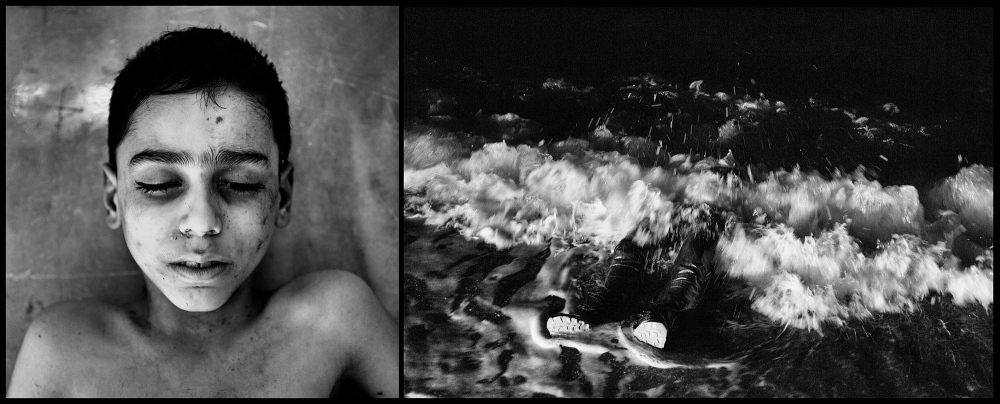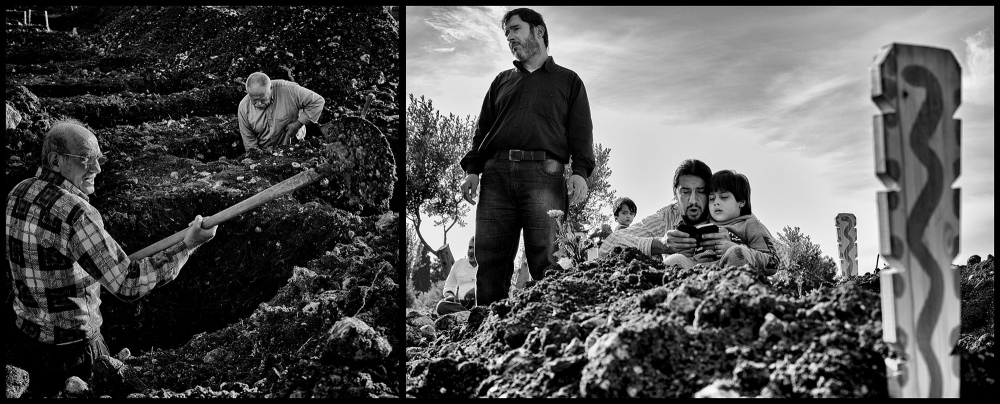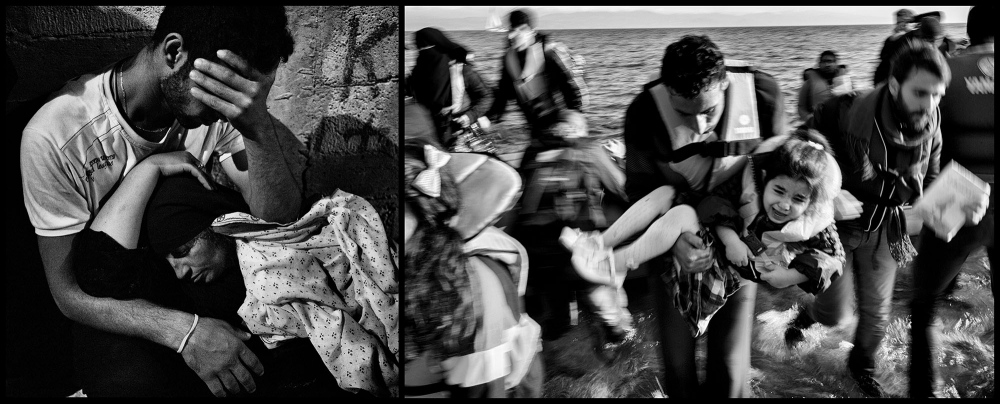"Trapped" Synopsis
Greece has been the gate to Europe since 2009 when the immigration crisis broke out. Refugees from Asia, Africa and the Middle East crossed the Greek boarders either by land or sea. The last two years the situation deteriorated with over 1,023,930 people making their way into the EU. In fear of immigrant invasion and terrorism, 12 razor-wire fences were built by European and Balkan counties. Today, more than 57.000 refugees/immigrants are trapped in Greece. With no efficient action by EU and while Greece struggles in the middle of financial and social crisis, it seems inevitable to deal with the issue. At same time and despite people's efforts refugees/immigrants hardly manage to maintain their basic rights. They have to deal not only with their uncertain future but also with xenophobia, violence and marginalisation.
"Trapped"
My motive to work on the immigration crisis lies in the fact that members of my own family have immigrated to Australia, America, and Western Europe in the past. Since the 1990s I have been following the immigrant flow in Greece. During 1990s, 500.000 Albanians emigrated to Greece, as well as people from other countries such as the former Soviet Union, former Yugoslavia, Turkey and central Africa (who moved to central Europe).
Since 2009, Greece has been a point of entry and transit for two million migrants from Africa, Asia and the Middle East. Once the refugee crisis erupted this past summer, this number has expanded exponentially. Greece's severely troubled economy, porous borders, inadequate reception facilities, and ineffective asylum policies has created a tenuous environment for the country's immigration officials and refugees.
After escaping Syria, Afghanistan, and Africa, migrants/refugees attempt the dangerous sea crossing from Turkey to the eastern Aegean islands, usually arriving in Kos or Lesvos. Many migrants have lost their lives making the perilous crossing. In what has been described as the "worst refugee crisis since the Second World War," approximately in 2015 and 2016 so far 6,280 people have died crossing the Mediterranean according to the UNHCR and the IOM.
From the begging of 2015 until now approximately 1,023,930 migrants have reached the Greek boarders, most of whom made their way into Western Europe. Now, they cannot travel beyond Greece, as border control has tightened in fear of immigrant invasion and terrorism. This has resulted in 63.000 refugees being trapped. In February 2016, Macedonia erected a second fence becoming the 12th country-along with Bulgaria, Serbia, Croatia, Slovenia, Austria, Hungary, Estonia, Ukraine, Spain and Turkey. As Europe seals its borders by building razor-wire fences to block the influx of migrants, xenophobia and nationalism poisons the open borders policy and the "democratic" values of Europe.
For over two years I was following the migration flows from the Aegean islands on the transit route until Hungary and Austria. Apart from the long and dangerous crossing I wanted to focus more on the refugees that were trapped in Greece. By doing so I mean to emphasise on the fact that Europe does not comply with the agreements according to the human rights under crisis situations. People are facing violence and are being mistreated by the police, in the camps, in the hot spots and in the countries that should provide them with asylum.
For example during the war in Kosovo refugees where safely transferred with airplanes to Western Europe. On the contrary refugees now, are forced to walk extremely long distances or even give huge amounts of money to smugglers to risk their lives in rotten boats, only to land again in a hostile environment. There they are treated like terrorists and being marginalised.
As I continue my immigration projects, I want to emphasise on the fact that the increase of xenophobia and nationalism in the European countries does not affect only the refugees that are trying to travel and integrate in the "host countries" at the moment, but also the former refugees that have been colonised since the 1950s. During the past last years, "right wing" and nationalistic parties have gained power mainly due to the "islamophobia". In the fear of terrorism the suppression measures have been increased and lots of minorities have become targets.




























